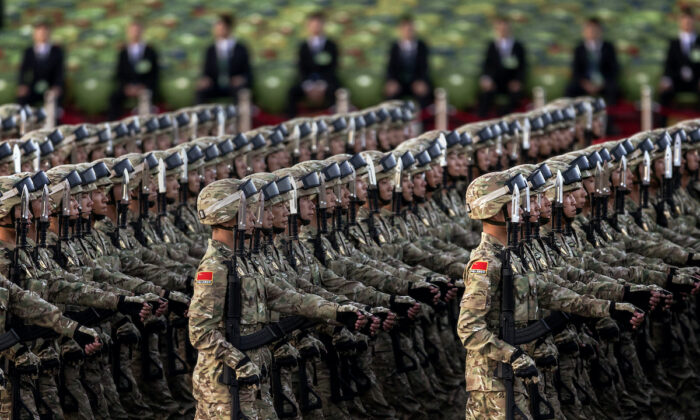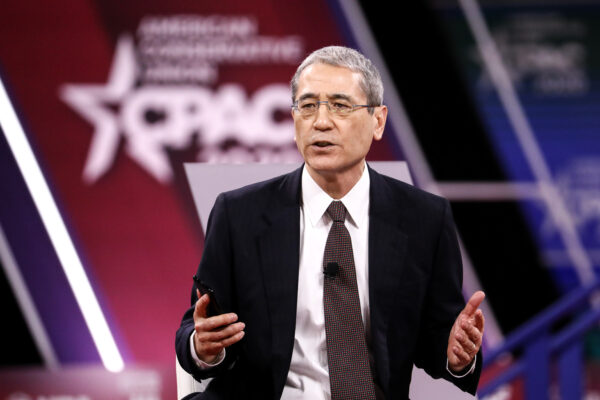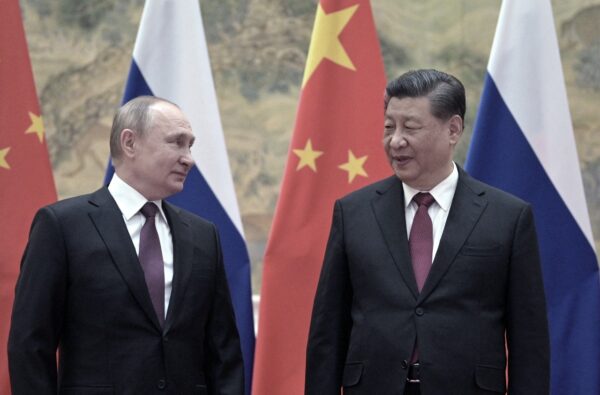By Frank Fang and David
Zhang
June 17, 2022 Updated: June 19, 2022
China
is likely to act on a new military order signed by Chinese leader Xi Jinping
and become more hostile against its neighbors, according to Gordon Chang,
author and senior fellow at the New York-based Gatestone Institute.
The
order, which went into effect on June 15, declares a set of “trial outlines”
allowing China’s military to have a legal basis to engage in “military operations other than war.” The
order also prepares the Chinese military to safeguard China’s sovereignty,
security, development interests, and regional stability.
“This
is a sign that China is going to be even more aggressive than it has been in
the past,” Chang told EpochTV’s
“China Insider.”
“What
China is doing here is signaling that it is prepared to use its military offshore
in ways which are going to irritate the international community and actually do
more than that, to violate norms that we hold.”
Xi’s new order has sparked a new round of sovereignty concerns in Taiwan, a de facto independent state that the Chinese Communist Party (CCP) seeks to take over. There’s speculation that Xi is “legitimizing” a possible future military action against the self-ruled island through the order, a move that would be similar to Russian leader Vladimir Putin’s invasion of Ukraine, which he called an act of “self-defense” and a “special military operation.”
For Chang, the new order hasn’t changed how the Chinese regime thinks and operates.
“China
is going to do what it’s going to do, law or no law. The Communist Party is not
restrained by law. It’s not restrained by treaties,” he said. “So, for
instance, it’s signed, ratified, and now violates the U.N. Convention on the
Law of the Sea. And it does it regularly.”
Beijing
has adopted aggressive tactics to stake its claims
in the South China Sea, even though The Hague’s Permanent Court of Arbitration
ruled in 2016 that China’s territorial claims were inconsistent with the U.N.
Convention on the Law of the Sea.
As for
the timeline of China invading Taiwan, Chang doesn’t believe that the communist
regime is “ready for it.”
However,
he said the world “can be taken by surprise” by such an invasion; thus,
preparations must be made to defend the island and other areas.
The new
order isn’t the only signal indicating a more aggressive China. According to
Chang, the phone call between Xi and Putin on June 15 showed Beijing’s “all-in
support” for Russia’s attack on Ukraine and the Kremlin’s notion of its
“sovereignty.”
Following
their call, the two leaders agreed to deepen their “strategic coordination.” At the same
time, Xi acknowledged the “legitimacy of Russia’s actions in protecting
its fundamental national interests in the face of security challenges created
by external forces.”
“This is another sign to us that China is starting a more provocative, even more belligerent, phase of its external policies,” Chang said. “This is a real indication that we have China prepared to invade Taiwan, India, Japan, or the Philippines.”
Before their latest announcement on coordination, Xi and Putin had already updated their bilateral relationship to a “no limits” partnership in February, three weeks before Russia invaded Ukraine. At that time, the two leaders also declared that there would be “no ‘forbidden’ areas of cooperation” between the two neighbors.
Chang
said the CCP poses an alarming threat in the immediate future.
“This
could very well be the most dangerous time in history,” he said. “This is a
point where I think is far more dangerous than the Cuban Missile Crisis or
Checkpoint Charlie Crisis of the preceding year.”
Chang
said a potential crisis stems from the fact that the Chinese regime has never
ruled out the use of nuclear weapons against its neighbors or the United
States.
“So we
are at one of these points where everything could go horribly wrong in an
instant,” he said.



No comments:
Post a Comment